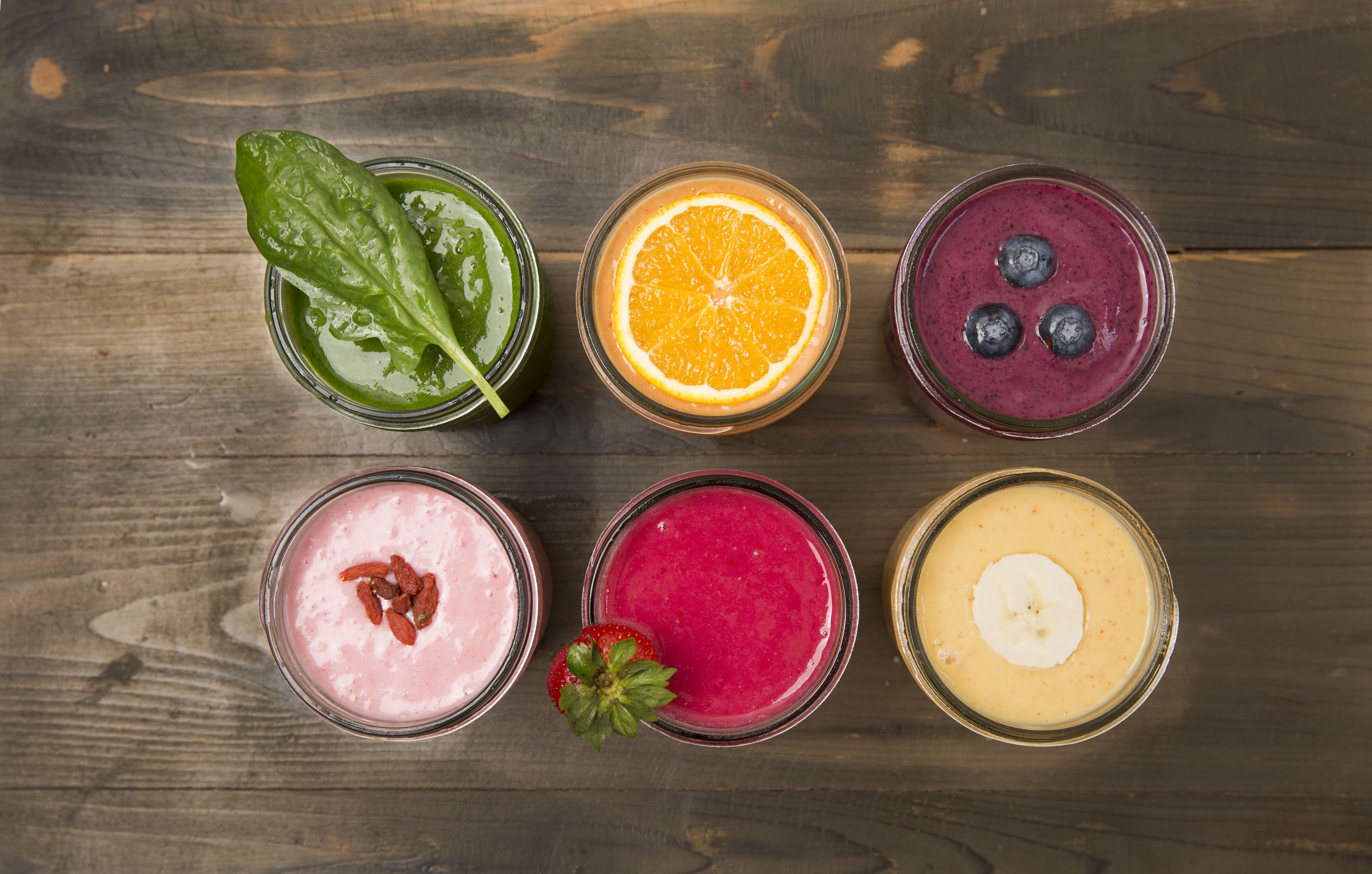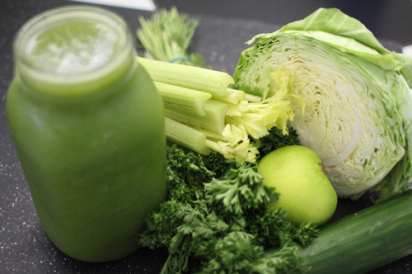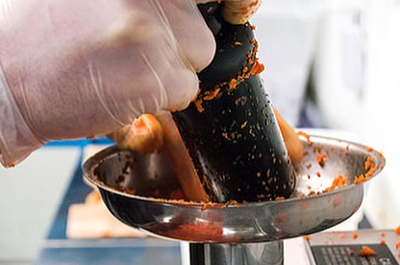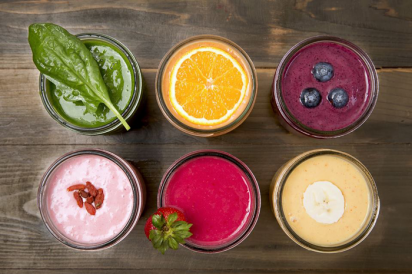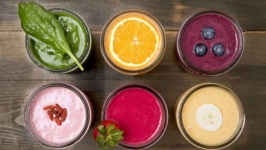COLD COMFORT: WHY JUICING—DONE RIGHT—ENHANCES YOUR HEALTH
It’s mid-January, and a lot of us are still feeling the effects of the holidays. I’m a firm believer in the maxim, “Everything in moderation, including moderation,” but all that moderate moderation takes its toll. There’s a reason there’s a spike in respiratory illnesses and flu in January, and if nothing else, all that holiday revelry can manifest in weight gain, bloat, dull skin and hair and fatigue. Ergo, the rise of America’s multi-billion-dollar juice and smoothie industry.
I realize this post may sound like an infomercial for NutriBullet, but bear with me. Full disclosure, I once viewed juicing with deep suspicion (just Google the nutritional values of your average Jamba Juice), until a few years ago, when I was hired to conduct a months-long research project, reviewing different brands and types of juicers for a Consumer Reports-type guide.
I embarked on a daily juicing regime (for the sake of consistency, I used the same combination of ingredients every time; raw beets, carrots, spinach, ginger and apple), immersing myself in the world of centrifugal versus masticating juicers (the former uses a spinning disk, which produces heat that can destroy some of the vitamins and minerals in produce; the latter uses a slow-moving auger to crush the ingredients, resulting in “cold-pressed” juice that retains the cellular structure and nutritional integrity of ingredients).
I learned to not only appreciate, but enjoy, juicing. Like most of us, I can get lazy about consuming the recommended daily amount of fruits and vegetables, especially given our short growing season. Juicing is an ideal way to ensure those needs are being met (note that it’s not a substitute for whole foods, nor are vitamins and other supplements).
When Carbondale’s Tonic Juicery opened two-and-a-half years ago, it filled a void for downvalley residents already sold on the benefits of juicing, but the tiny shop’s raw, 100-percent organic offerings—which include smoothies, tonics and house-made nut “mylks”—attracted newcomers unable to resist delicious concoctions like The Brazilian (a combination of sprouted Brazil nuts, dates, vanilla, Himalayan pink salt and filtered water, which I can confirm tastes like the best cereal-milk, ever).
With post-holiday detox in mind, I recently sat down with co-owner Lindsay Mills, who runs Tonic with her husband, Micah. The couple moved to Carbondale in 2003 (Micah grew up near Santa Fe; Lindsay is from near Grand Junction) for Micah’s former career in construction. The couple met while attending Adams State University, and have always shared a passion for an active, healthy lifestyle. “We’ve been into juicing for nutrition since then,” says Lindsay. “I would always try new juices when we traveled, and Micah grew up in a hippie family, so juicing was just part of his upbringing.”
Lindsay’s interest in wellness eventually led her to become a Holistic Health Coach and a graduate from the Institute of Integrative Nutrition, and a desire to own their own small business, and have more time for their three children led them to open Tonic Juicery. All of the juices are pressed and bottled on-site. Says Lindsay, “Our philosophy of sustainability extends to our packaging and sourcing.” The juices are bottled in glass, which helps to retain flavor and doesn’t leach chemicals: Tonic offers a clean bottle exchange program, where customers receive credit on their next purchase.
Micah estimates the juicery goes through 250 to 300 pounds of produce a day—which makes meeting supply and demand difficult were they to rely solely upon regional farms. “We source from Colorado whenever possible, and if we can get local product—we use Paonia apples, for example—we do.”
Adds Lindsay, “It’s about more than just pressing a bunch of produce. With cold-pressed juice [Tonic uses a Goodnature professional hydraulic press], where all of the fiber is removed, it makes the juice very bio-available for your body, so micronutrients go straight to your bloodstream. A lot of literature says you need fiber and of course juice isn’t a long-term substitute for whole foods, but it is packed with prebiotics—otherwise known as insoluble fiber. In our grab-and-go culture, it’s the best way to get supplementary vitamins and other nutrients, or to balance the effects of eating treats like pastry.”
Because the liver can’t metabolize certain nutrients, they need to be combined with specific ingredients in order to break the blood-brain barrier. The Mills' create their juices and smoothies with this in mind. Explains Lindsay, “Bromelain—an enzyme in pineapple—combined with the fat in coconut oil helps the body to assimilate the anti-inflammatories in turmeric root. Black pepper serves a similar function (studies have shown that combining it with turmeric increases the latter’s absorption rate by around 2,000-percent), which is why we use a garam masala blend in our beet and turmeric-enhanced Ruby Spice juice.”
The Mills' also sprout the nuts (mostly the Brazil variety) used for their mylks, because the process increases the nutritional benefits. Tonic’s menu includes made-to-order smoothies like the Avo-ca-lada (cucumber, kale, spinach, lime, mango, pineapple, coconut oil, coconut water and ginger) and juice/mylk combos like the Orange Dream (Brazilian mylk, goji berries, orange juice and banana), and add-ons like activated charcoal, flax, maca and cacao nibs.
The two-ounce tonics—what the Mills' call “shots,” are particularly good for recovery, as they contain anti-inflammatories, and help restore circulation, boost immunity and ease respiratory and headache symptoms, notes Lindsay.
“We have a lot of regular customers, including people with chronic illness, mental health issues and in remission from cancer.” Ingredients like turmeric have been proven to improve brain function, while compounds in other foods can relieve symptoms like fatigue (coconut oil), digestive problems (ginger, fennel and raw apple juice), insomnia (celery, beet, carrot and pineapple) and migraines (activated charcoal and ginger).
Tonic also sells cleanse packages and customized cleanses for customers wanting more than just a quick nutritional boost. “After the holidays, I always feel cloudy, like I have a hangover. There’s just so much excess, and we’re not purists, so I’m not going to deprive myself,” says Lindsay. “Even on a cleanse, you don’t have to just subsist on juice. If you want to try it, just eat clean and incorporate three juices a day into your diet for a few days.” To aid customers with the process, Tonic offers pre-cleanse, during and post-cleanse guidelines to ensure dietary needs are met.
For the Mills', juicing is about more than just a lifestyle and earning a living. “I feel like the juicery as a whole has enhanced our life,” says Lindsay, thoughtfully. “It’s a really happy, healthy business—people come in here in a good mood. It’s literally like sunshine in a bottle.”
Tonic Juicery delivers valley-wide (visit their website to order), and their juices are sold at O2 Aspen Studio & Spa, Hotel Jerome and Fahrenheit Body Spas in Willits.


